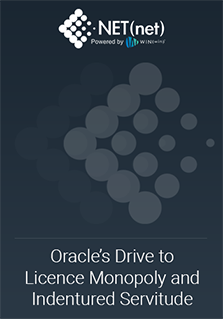I love the show, Pawn Stars. Even if you've never watched it, you can likely tell by the name that it's a reality-based show based on a pawn shop, and the wheeling and dealing done between the shop's employees and its customers. As a professional negotiator, I've been riveted to many episodes simply to watch people's negotiation styles and techniques.
The unfortunate truth, however, is that most people don't really have a style - they have the foundation for a single technique: anchoring. They walk into the store with an item they want to sell and a gut-feeling about the price they want. They play show-and-tell with the employees and then usually simply name a far-fetched price. In fact, in the dozens of episodes I've watched, I've hardly (if ever) seen a customer come in with anything to support their desired amount.
Why is this important? The basis for the anchoring technique is that you set your desired outcome higher than you expect to actually receive. This sets an "anchor" in the other person's mind about where your expectations lay. And if the other side is at all malleable, or if your anchor is near their BATNA (best alternative to a negotiated agreement), you end up discovering the ZOPA (zone of possible agreement).
But anchoring has to be done within the realm of possibility. If you're not even in the same ballpark as the other party, you can name whatever price/outcome you desire and have absolutely no chance of getting it. The Pawn Star employees thus use what I'll term anchoring+ for the purposes of this discussion. They also (eventually) state a desired outcome (the lowball offer), but they ALWAYS start with a story.
Again, why? Because in order to legitimize their anchor point, they want to make it sound like they're going to name an offer based more firmly in reality. So they talk about the historical significance of the item. They discuss its use and its age. And, sandwiched between positive statements about the item, they always include at least one "but if" or "if only" or "however" wherein they make a statement about how this PARTICULAR item isn't worthy of the highest associated value for items such as the one presented.
For example, a customer brings in a flint-lock pistol for sale. The employee talks about its authenticity and its probable value. But in the middle of all of the value-increasing comments, they insert one about the commonality of such an item. For antique collectors/sellers, commonly accessible items are less valuable. The result is that Pawn Star employees are going to anchor the price well south of the asking price, with legitimizing support (even if they're just making it up on the spot). The net result, of course, is that if the deal is actually completed, it's done much closer to the Pawn Star employee anchor point than the customer anchor point.
This situation directly applies to technology purchases. All too often, the buyer of a new technology item (software, hardware, etc), has been presented with dozens of forms of legitimizing items: websites, printed documents, testimonials, multiple supplier contacts praising the subject matter of the purchase, etcetera. Each of these legitimizing items pushes the perceived value of the subject matter higher and higher. So when the salesperson says that this new technology item is going to cost $100K, they merely point to all of the legitimized artifacts and say "see - these things tell you that it's worth what we're selling it for."
The problem, of course, is that the legitimizing items are worthless. They're supplier-created propaganda specifically designed to promote and increase the supplier's product values. In and of themselves, they do not have value that will serve the client in any way. At the end of the day, it's just marketing.
Counteracting the legitimizing and anchoring technique is simple, once you know the trick: Federated Market Intelligence. Knowing what the market really pays for a particular item allows you the ability to ignore the marketing fluff, focus on whether the technology you want will deliver the solution you need and then keep you from paying based on your "desire" rather than the product's actual "worth."
But Federated Market Intelligence isn't common knowledge. It's an amalgamation of information we built from managing over fifteen thousand engagements, while serving the unique needs of over 1200 global clients across a spectrum of over 250 different technology suppliers. It's a knowledgebase built through negotiating the same types of deals over and over again. And it's rare to find such a resource within a buyer's organization simply because most buyers only deal with a specific supplier, at most, a few times per year and don't have visibility into the quantity of deals necessary to assemble this type of data.
As a trusted partner, helping clients capture more than $50 Billion of incremental value in technology-related transactions, NET(net)'s institutional knowledge of the industry and insights of specific suppliers gives us the ability to provide you with unparalleled capabilities you can take into your next deal. Allow us to put our Federated Market Intelligence to work for you and you'll see first-hand how we routinely help our clients save well in excess of 33% on their most critical IT Supplier Investments.
In hacker parlance, that will keep you from being p0wnd (http://onlineslangdictionary.com/definition+of/p0wned).
NET(net)’s Website/Blogs/Articles and other content is subject to NET(net)’s legal terms offered for general information purposes only, and while NET(net) may offer views and opinions regarding the subject matter, such views and opinions are not intended to malign or disparage any other company or other individual or group.

















